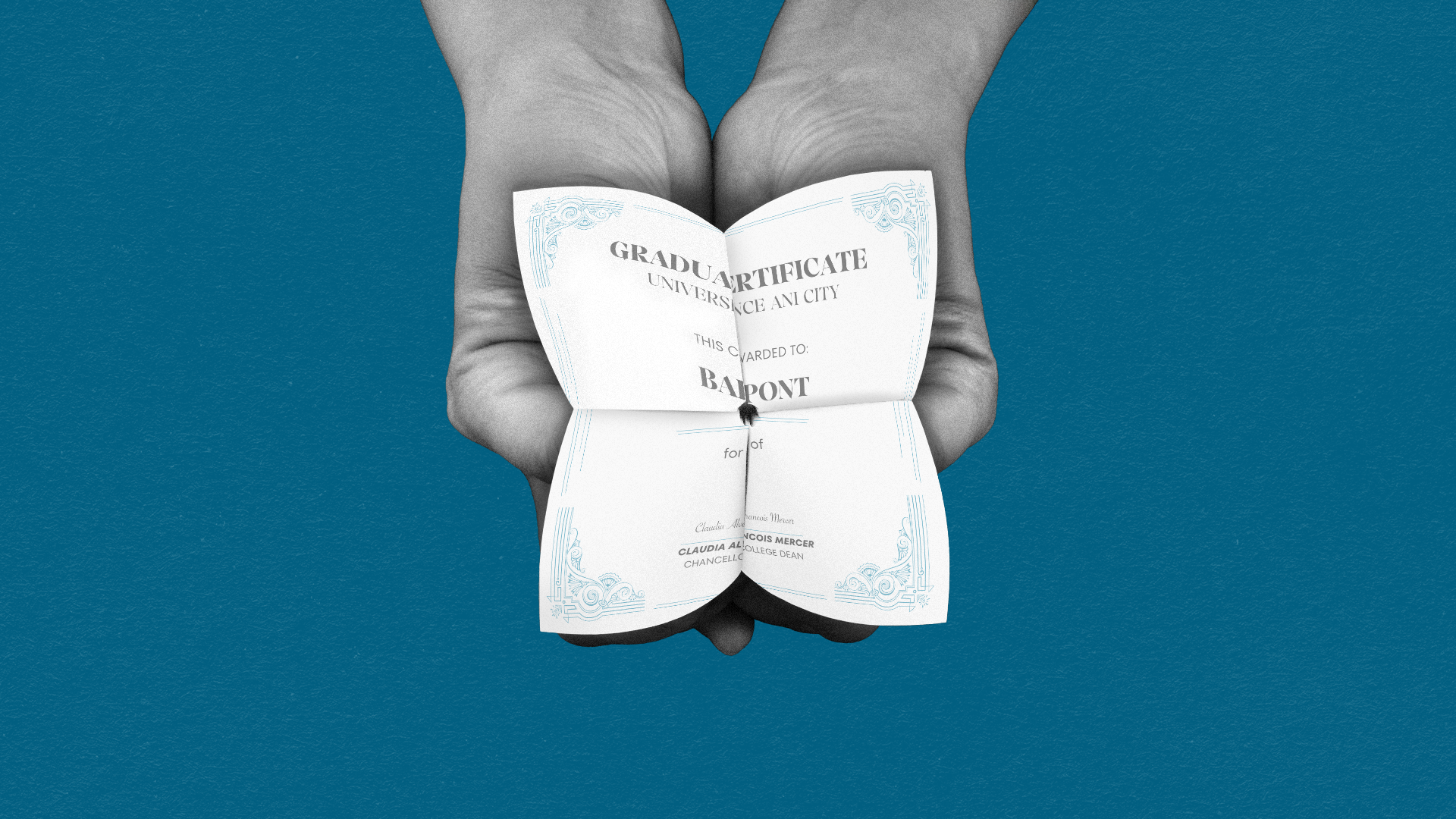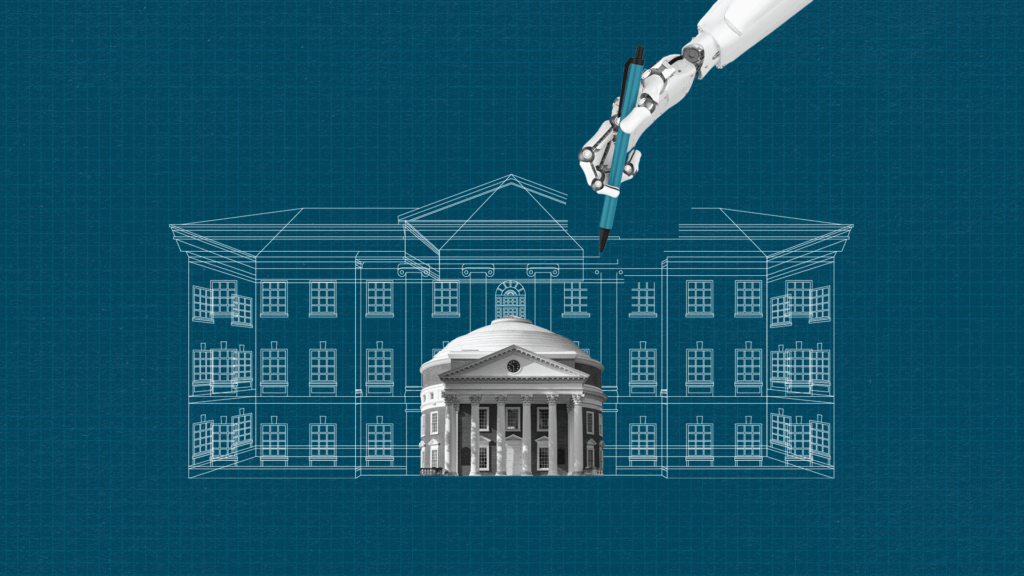- Part I: What Are Campuses Facing Today?
- Part II: What Can Higher Education Learn from Retail, Specifically Apple?
- Part III: What Can Higher Education Learn from Healthcare, Specifically the Cleveland Clinic?
- Part IV: Lessons from Outside Higher Ed: International Lessons from Apple in China
Series Title: Learning from Outside of Higher Education to Build an Agile Campus (A four-part series)
A roundtable discussion with Dr. Doug Guthrie, Elliot Felix, and Dr. Scott Bass
Series Overview
The landscape of higher education is undergoing a pivotal transformation, one that demands a fresh perspective on how we approach the student experience. Drawing parallels from places outside of higher education and the evolving needs of students, we’re embarking on a journey to explore how institutions can adopt and adapt these lessons. This series will delve into the innovative strategies of leading retail, healthcare, and other institutions that could enable a more agile campus, and help shape the future role of the campus in an increasingly online world.
What Can Higher Education Learn from Retail, Specifically Apple?
Are there examples or even best practices outside of higher education that can help teach how to be more agile? Where can universities look to gather lessons on improving the overall student experience?
This second article focuses on lessons to be learned from the retail industry. Taking insights from places like Apple and Costco, the conversation looks to expand horizons. In the next article, we will dive deeper into healthcare, specifically how higher education can learn from innovations that have been implemented at hospitals to improve patient care. Part I of this series can be found here.
Key takeaways:
Takeaway 6: Retail at its best focuses not just on the product or service being provided but rather the overall experience for that customer.
Guthrie
“The Apple retail insight is that yes, you need the best product on the market, you need a beautiful thing that is technologically the best and the best user experience, but this experience is also walking into that beautiful store. So the consumer experience is not what the product did. You get it at the end. That’s part of it. But the consumer experience is also how you experience that thing … That’s why Apple developed all of the SE devices. The idea at Apple was you could still have access to an Apple product, Apple software, and Apple services. Apple CEO Tim Cook emphasized that “we have to teach the virtuous cycle. It’s hardware, software, and services. It’s not just that you have the phone. It’s how you’re treated when you call a service person and how they treat you on the phone. When you buy an SE, you still get the software and services. Apple was very good at thinking about that. Higher Ed needs to do so.”
Felix
“I think the Apple analogy is quite a fruitful and generative one. Economists think about Higher Ed as an “experience good,” something you don’t know the value of until you’ve experienced it. You can think about Apple by its products, but in a way, it’s also an “experience good” because the Apple experience is a function of the brand. It’s a function of the products. It’s a function of the retail spaces. It’s a function of the services that they offer in those spaces. It’s a function of the program that they offer to activate and enliven those spaces and to bring people together around their products and with their products. So I think it’s quite fruitful because Higher Ed has all those things. It has spaces. It has support services. It has people. It has products, which are its academic programs. It has all the things you can do in and out of the classroom. It has a brand that becomes part of your identity. All of those lead to an experience.”
Takeaway 7: This experience is driven by proactive, helpful staff whose job it is to be knowledgeable, friendly, and capable.
Felix
“What makes the Apple Store experience great, of course, is the brand. While Apple has great products, it’s that they thought about the space, the services and the staffing together. You come in and it’s a beautiful space. It’s large, with big pieces of glass, and clean lines. But it’s also the staffing: There’s a sea of people that are there to help you, which is what makes it possible to take away the “cash register”. Then, there are also the services, the programs, the classes, and the Genius Bar for tech support.
Bass [applying it back to HiEd]
“It has to do with the way you’re treated at the college or university. Do I belong here? Do people care about me? Do I have to go to another office to deal with my financial aid question after I spend time at the One Stop Center? Should I need assistance with multiple issues, such as those related to my health, my conflict with my roommate, and my academic accommodations associated with my learning disability, how can I manage these issues when my academic advisor only knows about my coursework, academic requirements, and my academic plan of study, but all these issues are on my mind?. There are lots of supportive people in the student service offices and everybody seems to care, but nobody has all the information to effectively solve complicated problems promptly. “
Takeaway 8: The goal is to invoke aspirational values with that experience, to invoke a sense of community and connectivity, simply by showing up and participating.
Felix
“The big thing Apple did is shift the paradigm in retail. They were very explicit about creating a space that was about the ownership experience, not the buying experience. They wanted to create a public space that felt like a library. According to Ron Johnson’s early remarks, that ownership experience meant you had reasons to go there other than simply to buy something. You might go there for tech support, which became the Genius Bar. Or you might go there to learn something in a class. Or you might go there to feel like you’re part of something, part of a community, which I think is something Apple does so well with their brand. Somehow, they’ve done the brand alchemy of making you feel like you’re part of a creative community by owning an Apple computer. I think colleges and universities have amazing brands and can do that similar kind of alchemy, maybe even more easily – to feel like you’re part of something. They have sports, they have activities, they have apparel, they have affinity or identity groups and spaces, and you’ve got your classes and your major I think Apple is an instructive model for building a community around a brand and we know how important community and belonging is to student success.”
Bass
“When you go to Costco Tire Center and are a member, you go there knowing exactly what you need – quality brand-name tires. Should you purchase a set of tires from them they’ll rotate and balance the tire at a pre-determined number of miles at no additional cost effectively extending the life of the tires.. They’ll fulfill everything they said when purchasing a set of tires. They will offer you a battery for nearly $100 less than the same battery anywhere else, but they will not install these same batteries. The point is that Costco is very clear in what they can do and within these terms, they provide great service at a fair price. REI also prides itself on its membership program. If you want to return something in a year and you’ve used it and you don’t like it, no questions will be asked. L.L. Bean is another outstanding example of customer service. When you go to Freeport, Maine, you know that the LL Bean store is always open, 24-7, so you can be confident to acquire goods for hunting, fishing, camping, and other outdoor items just when you need them even at an hour when other stores are closed. Each of these retail centers is clear on its mission, its niche, and what it can offer and what it cannot. As a result, they build a respected and distinct reputation – even a dedicated following.”



